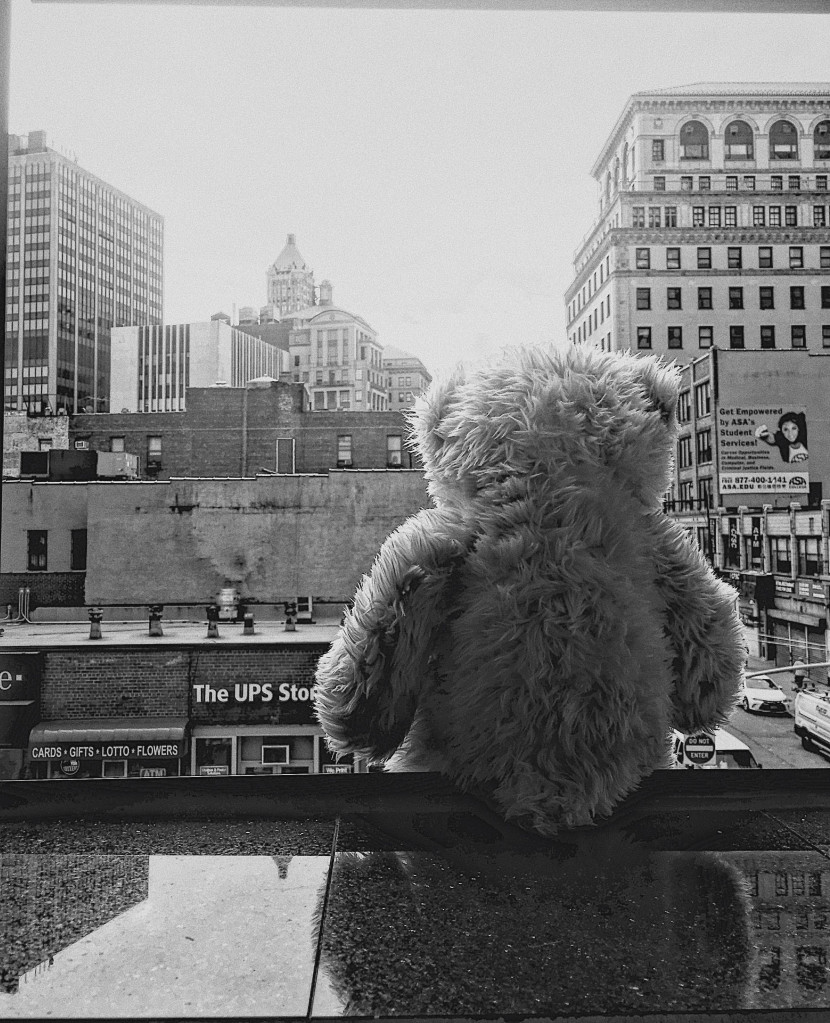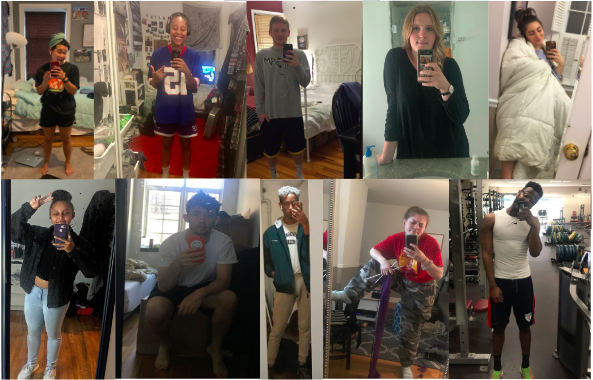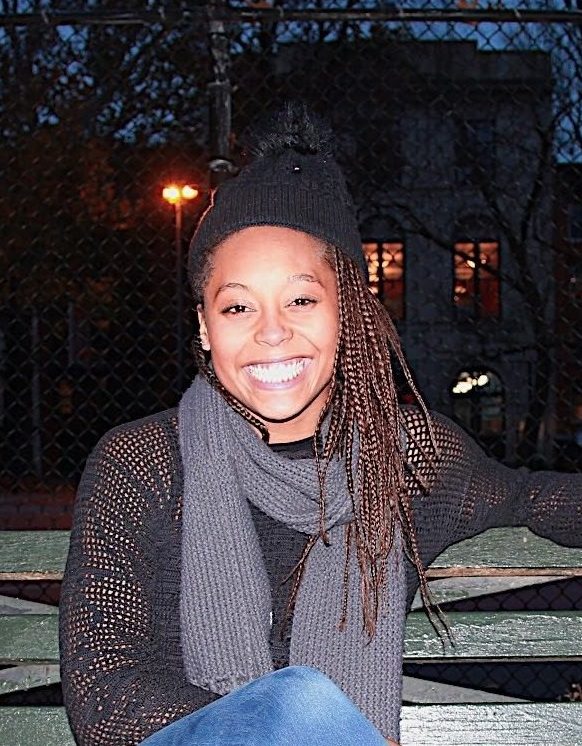Welcome to our special section, Thrive on Campus, devoted to covering the urgent issue of mental health among college and university students from all angles. If you are a college student, we invite you to apply to be an Editor-at-Large, or to simply contribute (please tag your pieces ThriveOnCampus). We welcome faculty, clinicians, and graduates to contribute as well. Read more here.
Embrace FOBA (Fear of Being Alone)
When you feel lonely, do you ever experience an extreme sense of discomfort that stretches beyond the feelings of FOMO (Fear of Missing Out) and lies within the depths of what may feel like infinite inadequacy?
That sounds depressing.
I don’t really like to be alone. To sit in my own solitude. Frankly, I’d rather read a novel at a party than in my own bedroom. Unfortunately, self-doubt is more easily accessible when alone in times of ache. This is because loving the self when by ourselves often feels terrifying, and seeking words of affirmation tends to be the “easier” and or “safer” escape.
I Like to Dance Alone
A couple of months ago, I walked in on my roommate wearing sunglasses, looking at herself in the mirror and jamming to the music blaring in her headphones.
I probably should have knocked first…
After a few minutes of non-creepily staring, I started to laugh hysterically. Her head then popped up as she flung herself at me and tackled me to the wooden floor in surprise, slightly embarrassed, yet full of joy. Once we caught our breath, I asked her what she was doing. She stood to brush herself off and hesitantly said, “When I am sad, I dance in front of the mirror with sunglasses on to make myself feel better.”
It was odd how comforting her honesty made me feel.
Plainly because dancing alone can be incredibly challenging. A potential romantic partner canceling plans feels soul-crushing. A night in is said to be “depressing.” Several nights alone can feel even worse.
For these reasons, I couldn’t help wonder what it is that we thirst to find in others that at times feels excruciatingly difficult to attain in ourselves?

I Am My Own Best Friend
As humans, we seem to intuitively seek that which we are not.
Whether this urge of “exceptionality” is found in a partner, job or ourselves… Why is it often overwhelmingly difficult to feel “content” with who and what we are, as we more easily loathe ourselves for what we are not? For this same point, how can we begin to collectively and habitually appreciate the oddity of our excellence as well as the parts of ourselves that may make us feel weak?
According to most, if not all modern psychologists, humans instinctively crave contact, emotional and/or physical support. We are a social animal and a complex species that thrives when we feel a sense of belongingness. In other words, the standard warmth we desire seems to be in anticipation of connection, sex, and love which in turn feels incredibly worth fighting for.
And, it is.
But, the process of befriending the parts of ourselves that seem strange are not taught to be felt as intuitively. Potentially these were the odd parts of yourself that at 13 years old, you attempted to conceal. Perhaps, these were traits that fostered a wild sense of gratification and felt inexplicably pleasing, yet undoubtedly wrong at times.
For instance, when young adults were asked how to constructively self-soothe they said: “I hold my own boobs when I want to feel safe,” “I sing to myself to make me feel more silly,” “I scrutinize my face and body,” “I record myself crying so I can look at it later,” and my personal favorite: “I refer to myself as ‘we’ to make me feel more sure.”

How can we productively sit in our own solitude instead of using words of affirmation as a quick-fix emotional getaway?
Reject Human Intuition
Arguably not only society, but, Mother Nature has made it unnecessarily difficult for humans to unapologetically be the person that we are.
Growth is vital to survival.
Adaption is crucial for change.
So, intuitively contentedness with oneself may appear to be seemingly elementary. Though, there is a fruitful escape in the land of not only loving ourselves but, liking and accepting the person we are today. As stated by American psychologist Jerome Kagan, human intuition can be limiting simply because as a species: We don’t know what we don’t know.
“It’s intuitively pleasing that’s what’s getting in the way,” says Jerome Kagan, one of Mary Ainsworth’s most consistent anthologists. “Because it makes intuitive sense, people are assuming it’s right. But most of the time intuition is wrong. I mean, intuitively the sun goes around the earth, right? Intuitively the earth is flat, right? Why is psychology the least advanced science? Because our intuitions aren’t very good.”
Robert Karen, Becoming Attached
This lack of validity when it comes to “human intuition” linked to the potential craving for the presence and affection of others may aid us in rejecting feelings of emotional and or physical discomfort when we feel most alone.
It is exhilarating to know that there are aspects of ourselves that do not need make-up; no alterations, configurations, or a soulmate. And, although we may crave social acceptance, parental approval and romantic lust, you are enough to make yourself feel eternally secure.
As I continue to inch further into early adulthood, I’ve found joy in the fact that life is not promising, nor is it fair. Though, it is internally empowering to befriend the self when it appears to be most tiring in an effort to combat the “scary voices” that make us feel unsure. I believe that the truest critique we could say for ourselves is to tread more kindly because the strangest parts of ourselves are what make us grow and learn.
Stop Being Your Own Worst Critic
Laughter is said to be the most effective emotional tool of relief when attempting to embrace FOBA. This instinctive amusement is especially gratifying when done to and by ourselves.
It is one thing to know what we like about ourselves, but it’s another to know how to appropriately and inappropriately laugh at yourself just for being you.
Most importantly, once we learn how to identify and alleviate the complexities of our own needs, we can then trust that the people who deserve to be in our lives will always make an effort to be there. So, I encourage you to seek a taste of comfort in our societal shortcomings by dancing alone in front of the mirror… Maybe this time with no sunglasses on.
Happy Because I am Alone
I laugh in my sleep
It’s my most favoritest quality
My roomates call me slightly deranged
My father laughs along
And, my ex-girlfriend found it terrifying
I think it’s very telling.
In my wildest dreams
In my calmest parodies
When I am the loneliest,
And the most fond of being alone.
When the uncanniest instance of my inexplicable reality
Is re-enacted in the deepest of my unforeseen fantasy
I laugh in my sleep
I think it’s very telling.
I’m trying to like myself more
I’m trying to love myself for trying
I’m trying to perfect a way to not expect perfection
Sometimes, I’ll laugh, wake up and my eyes are still closed
Sometimes, I’ll laugh because you’re no longer next to me
Sometimes, I’ll laugh because
I am incredibly proud of myself for
Waking up,
Happy and Alone.
Subscribe here for all the latest news on how you can keep Thriving.
More on Mental Health on Campus:
What Campus Mental Health Centers Are Doing to Keep Up With Student Need
If You’re a Student Who’s Struggling With Mental Health, These 7 Tips Will Help
The Hidden Stress of RAs in the Student Mental Health Crisis

